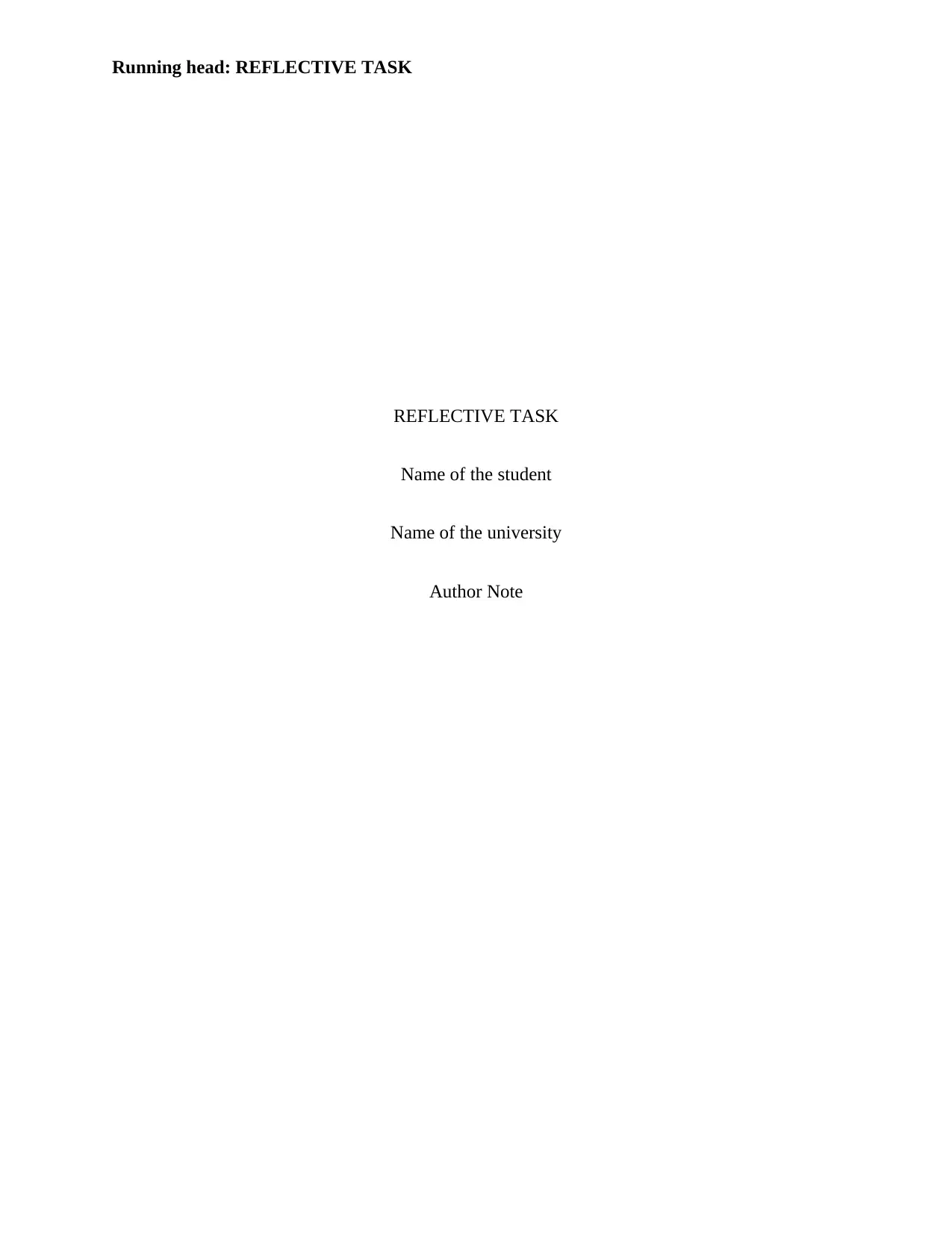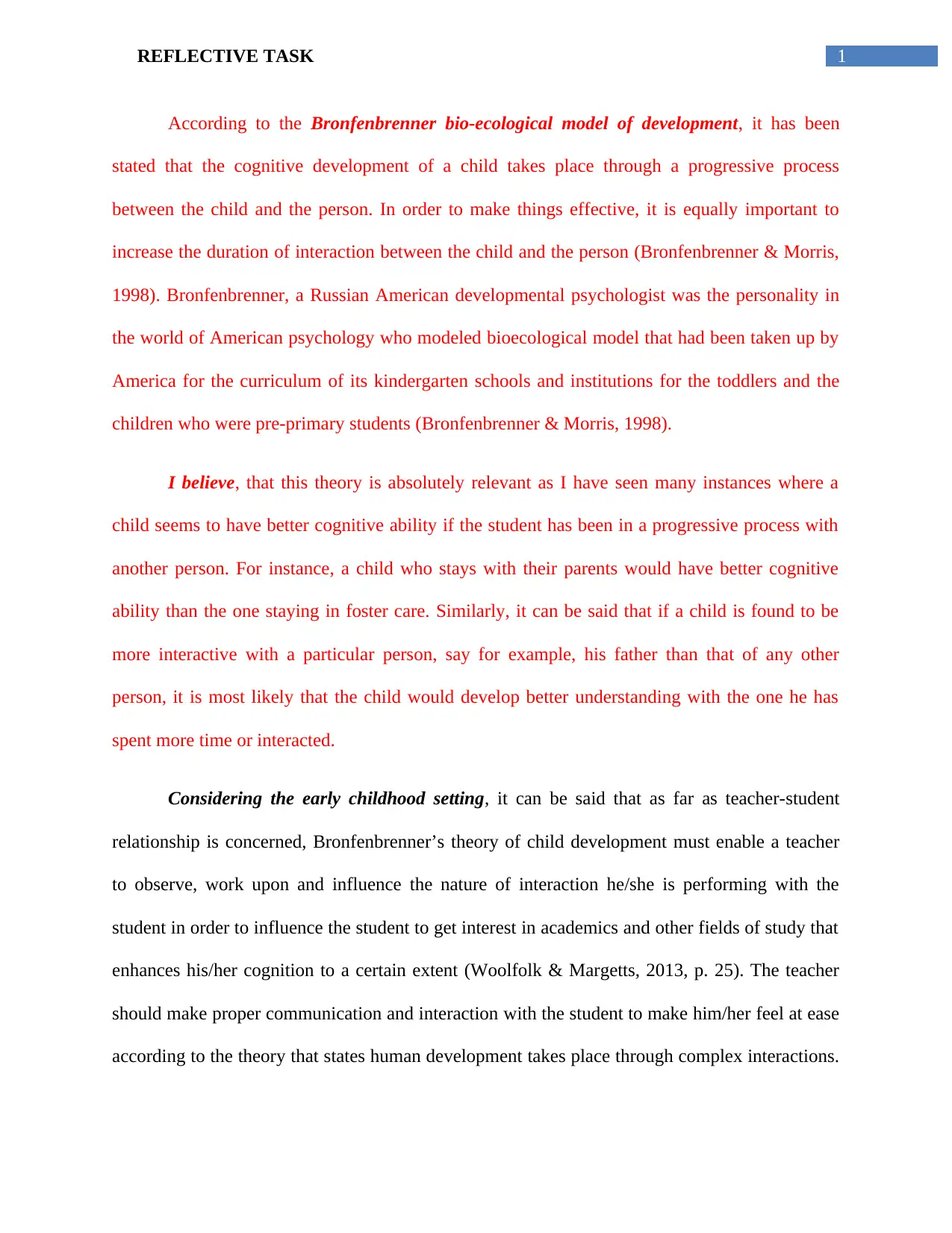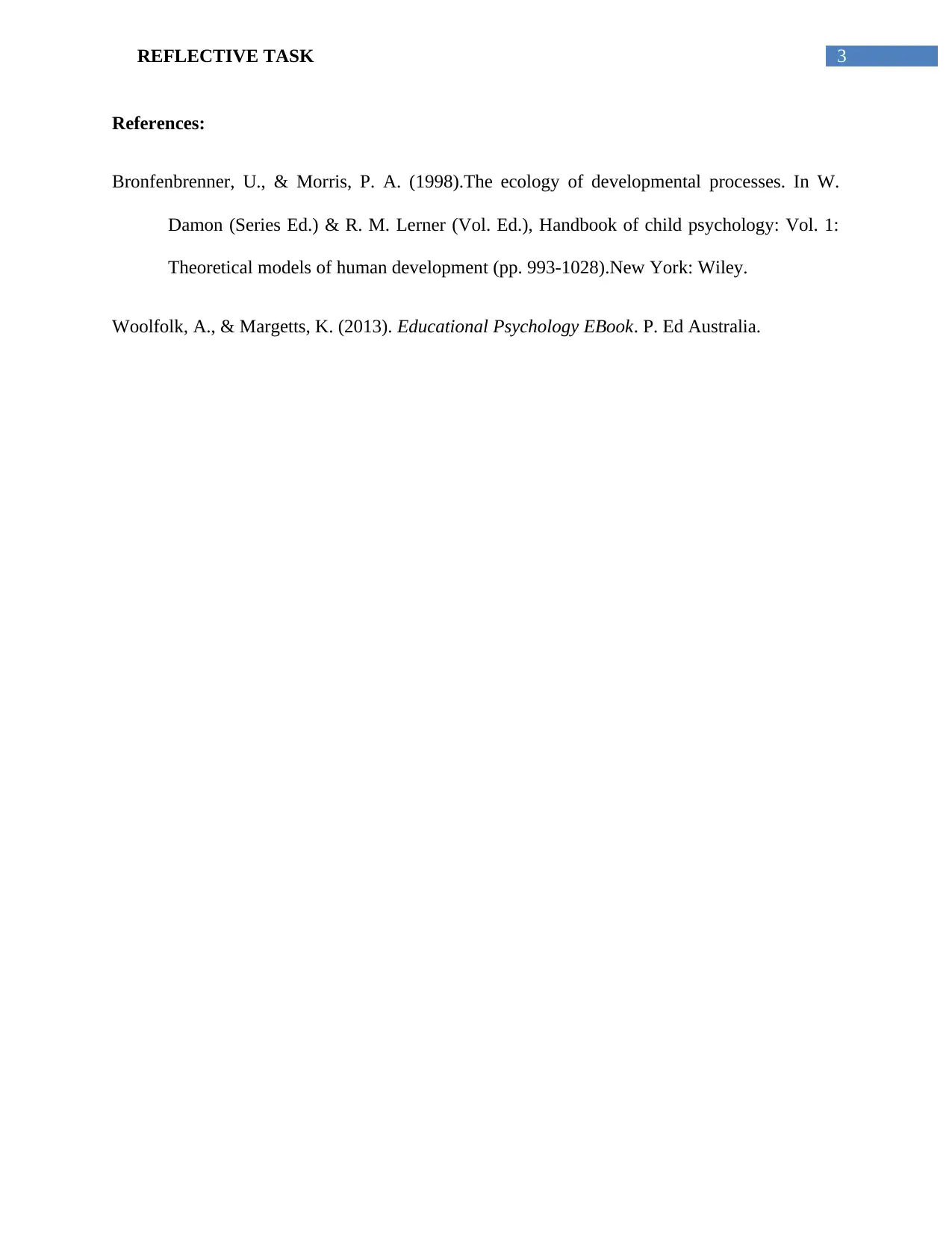Reflective Task: Application of Bronfenbrenner's Theory in Education
VerifiedAdded on 2022/11/30
|4
|477
|67
Homework Assignment
AI Summary
This assignment presents a student's reflective task on Bronfenbrenner's bio-ecological model of child development. The student discusses the relevance of the theory, emphasizing the importance of interaction between a child and other individuals, such as parents or teachers, in fostering cognitive abilities. The reflection highlights how the theory applies to early childhood settings and the teacher-student relationship, suggesting that teachers can influence a student's interest in academics through effective communication and interaction. The student also references Vygotsky's sociocultural theory, particularly the zone of proximal development (ZPD), and its significance in education. The assignment is based on the context of the provided assignment brief which is a journal article on innovative behavior, focusing on the application of social-cognitive theory and its implications for understanding how employees become motivated to generate and implement new ideas.
1 out of 4











![[object Object]](/_next/static/media/star-bottom.7253800d.svg)